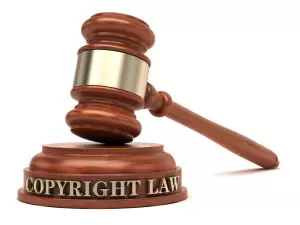 This month, singer Taylor Swift made headlines when she refused to let Apple’s new music streaming service stream her songs for free. The mega-corporation announced that it would not pay artists for the use of their music for the first three months of Apple Music’s trial period. But Swift responded by penning a letter on her blog explaining that Apple’s non-payment was “shocking, disappointing, and completely unlike this historically progressive and generous company.”
This month, singer Taylor Swift made headlines when she refused to let Apple’s new music streaming service stream her songs for free. The mega-corporation announced that it would not pay artists for the use of their music for the first three months of Apple Music’s trial period. But Swift responded by penning a letter on her blog explaining that Apple’s non-payment was “shocking, disappointing, and completely unlike this historically progressive and generous company.”
Fortunately, everything was sorted out days later, and the pop star will now see compensation for her works, including the streaming of her nearly five-times platinum album 1989. Swift’s songs are copyrighted, after all, meaning that this is how she, like other artists, sees compensation for her creations.
However, artists like Swift also have to be prepared for the worst at times. At one time, up to one-third of software and music CDs were thought to be counterfeit, but with the internet and music sharing services like Apple’s, problems surrounding intellectual property theft have moved online. Today at least 25% of all internet traffic is thought to go toward infringed content, including downloading movies and music. When artists find that their work is being distributed without their consent, they often have to turn to intellectual property lawyers for help.
An intellectual property rights lawyer needs to be prepared with strategies for intellectual property cases, whether going up against a big corporation like Apple or a rival small business for a client. In the past, strategies for intellectual property cases that involve the infringement of music have resulted in Digital Millennium Copyright Act (DMCA) takedowns. Today these strategies may also involve mediation between large companies to help the artists monetize streaming and downloads in a fair way.
Although it may not make a huge difference to Swift, who is a top selling musician worldwide, the incident does set a good precedent for other artists, who need the money. As the “Shake It Off” singer said in her letter, “This is about the new artist or band that has just released their first single and will not be paid for its success. This is about the young songwriter who just got his or her first cut and thought that the royalties from that would get them out of debt… but will not get paid for a quarter of a year’s worth of plays on his or her songs.” Enforcing existing intellectual property laws, through the help of a lawyer using known strategies for intellectual property cases, is what is fair to everyone.
